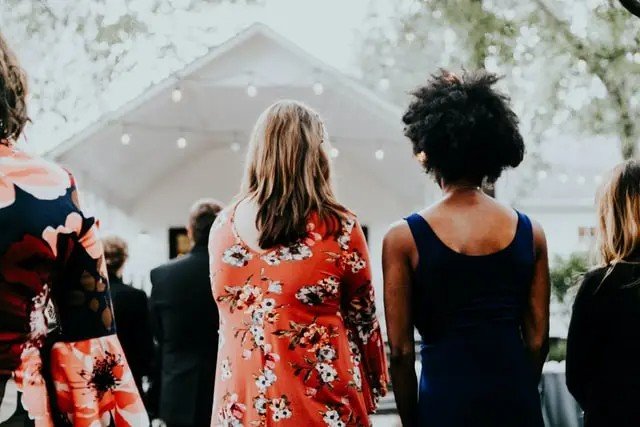What it Really Looks Like to Tear Down Racial Walls
Racism takes many forms. Recognizing and addressing this reality is a monumental task. But where do you start? How can you be a force for justice when everyone seems so ready to fight and divide?
In order to tear down racial walls, it’s important to see them accurately first and take personal responsibility second.
You’ve probably heard the phrase “white privilege” an awful lot in 2020. It’s just as likely that you’ve heard some knee-jerk reactions like, “I don’t have privilege!" or "I’m too poor to be privileged!”
This is a misreading of the differences in agency and opportunity that the term refers to. I strongly urge you to make time to dig deeper into this topic. Before doing so, I hope this post helps provide a more nuanced take on the racial miscommunication that builds the walls between us.
Recognizing Everyday Racism
If you are part of the racial majority, benefitting from white privilege means
you see members of your race represented widely and positively online and in the news, textbooks, and cultural institutions.
when you get pulled over by a cop, you never think it’s because of your race or skin color.
you don’t expect to be watched or followed around when you enter a store to browse or shop.
when looking to rent or buy a home, you can reasonably expect that your skin color will not deter your efforts.
There are countless more examples to consider but I hope you get the basic idea. Of course, there is much more to racism than obvious offenses like exclusion or the use of racial slurs. However, blaming you is not the ultimate goal of uncovering social privilege. The idea is for you to become aware and involved. Wanting to be proactive and learning how to be effective is paramount for change to happen.
If we want to tear down racial barriers, the onus is on us to do the work individually and as a community. We must acknowledge, understand, and cooperate to shift the inequality of the race-influenced world we all share.
How We Can Start Tearing Down Walls as Opposed to Building Them
Question Your News Feed
The Internet — especially social media — is designed to keep you engaged. This is accomplished thanks to artificial intelligence algorithms that feed you suggestions based on what they think you like. The result? Groupthink.
Allowing yourself to be drawn into one-sided social/political conversations online contributes to a distorted sense of community. One that discourages healthy questioning. Your news feed will not provide the well-rounded perspectives you need to think openly about race. You will have little opportunity to interact with those who think differently.
Face-to-face interaction, close to home, is where significant relational and racial change usually takes place.
Be Excited to Learn and Discover
It may feel like a whole new world right now. Tackling racial matters personally and meaningfully is a big job... but since when is that automatically a bad thing?
Use the current social environment as motivation to see more and know more. As with any new interaction or conflict, suspend your judgment long enough to begin race-related conversations active with two basic steps:
Hone your listening skills
Don’t get defensive
Now is the time to give each other the benefit of the doubt, the opportunity to lean in, and the chance to offer a measure of grace. Why? For the sake of deeper conversations and ongoing connections that lead to discovery and racial breakthrough, one relationship at a time.
Get Comfortable With Speaking Up
As you become more informed and aware, it may be time to practice letting people know. For example, if a friend or family member misrepresents something about the movement for racial justice, get comfortable with speaking up.
This is not about confrontation. Rather, you can engage in a respectful exchange of opinions and perspectives. It won’t always go smoothly but that’s how you learn and inform.
Tap Into Your Best Self (not Perfection)
If you saw a toddler inching too close to a dangerous situation, you’d call out to their parents. If necessary, you might even rush over to help. You don’t need to be “woke” to be a good person. Good people simply find ways to care and connect. They look for ways to ease suffering and resist being part of a system that causes it.
Let the same moral compass guide you when it comes to race issues. Tap into your goodness but spare yourself the unhealthy quest for perfection. Showing up to do the work is enough.
Getting Help to Dig Deeper
Even with a thousand posts like this, you may still be up against years or decades of social conditioning. Your good intentions may be butting up against multiple blind spots and lessons learned at a very young age. Your loved ones and community may not support your desire to dismantle racial walls.
To secure the support you need, some measure of professional guidance can be helpful. Working with a therapist is an excellent opportunity to grow and evolve. Amidst the division and paranoia of 2020, counseling may be the safe space you desperately need. Together you and your therapist can set goals for becoming the racially-aware ally you want to be. I am here for you. Please consider individual online counseling and reach out soon to learn more about how we can help.

